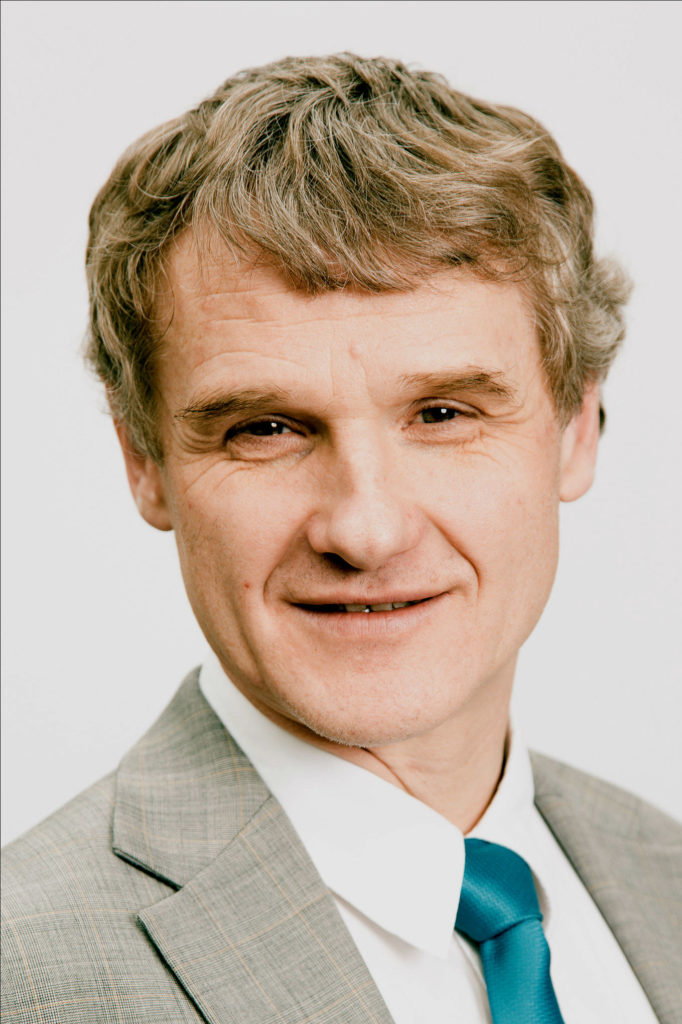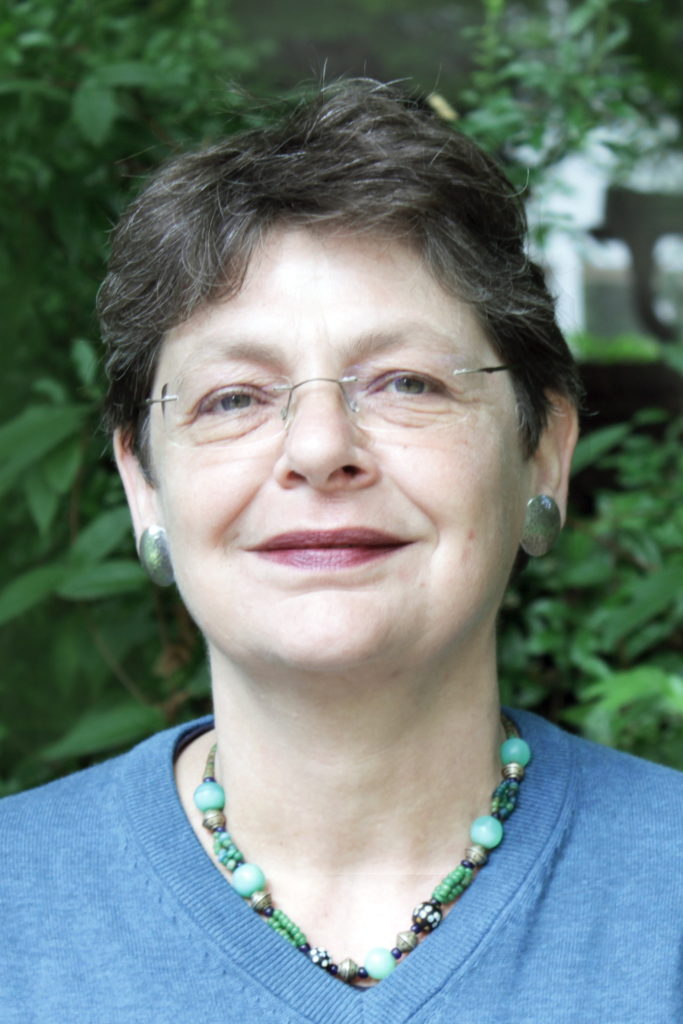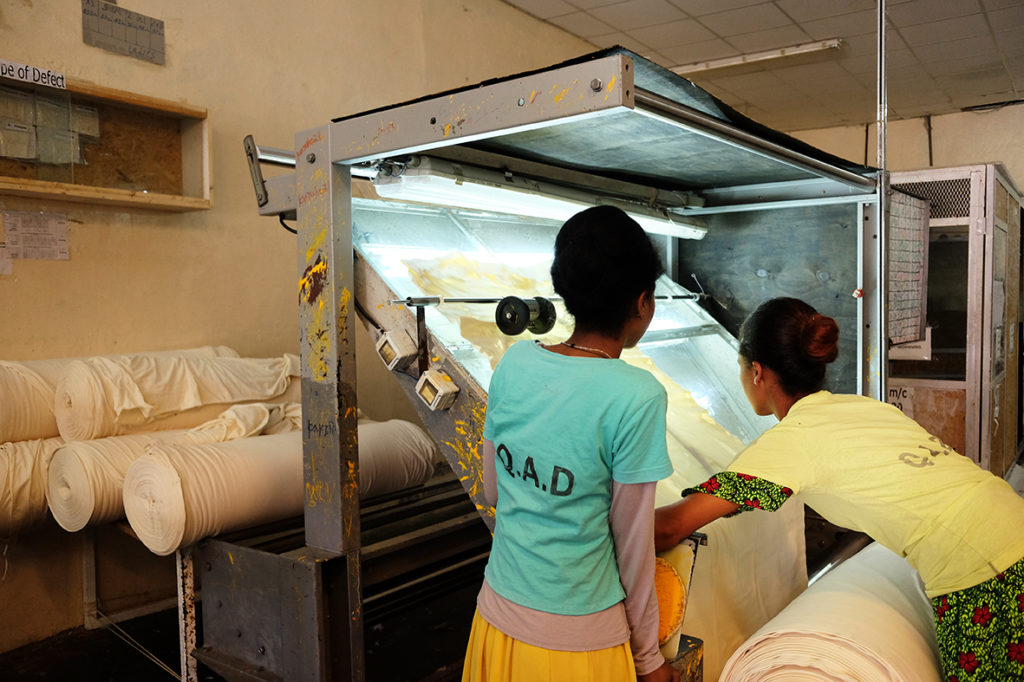Interview with Ulrich Fechter-Escamilla and Dr Christine Mansfeld, Exposure- und Dialogprogramme e.V.

 Exposure and Dialogue Programmes, EDP e.V. is a non-profit charitable association that offers extraordinary training programmes for decision-makers from politics, business, church and society. From October 20 to 27, EDP e.V. is offering a visit to Ethiopia with a focus on “good work” in textile processing. The Cotton Report editorial team spoke to Managing Director Ulrich Fechter-Escamilla and Dr Christine Mansfeld, Programme Officer, among other things about the special features of the programme and the importance of the cotton sector for the work of the association.
Exposure and Dialogue Programmes, EDP e.V. is a non-profit charitable association that offers extraordinary training programmes for decision-makers from politics, business, church and society. From October 20 to 27, EDP e.V. is offering a visit to Ethiopia with a focus on “good work” in textile processing. The Cotton Report editorial team spoke to Managing Director Ulrich Fechter-Escamilla and Dr Christine Mansfeld, Programme Officer, among other things about the special features of the programme and the importance of the cotton sector for the work of the association.
Bremen Cotton Report: Your association enables decision-makers to gain experience in the lives of people in emerging and developing countries through travel. What is the idea behind this and what do you aim to achieve with this service?
Ulrich Fechter-Escamilla: For 20 years, we have been pursuing the goal of sensitising decision-makers to the idea of poverty reduction. Our programme addresses people who are often unaware of their own potential in this area and promotes the networks of the participants among each other.
Dr Christine Mansfeld: What is special about our service is that the participants gain very practical and personal experience directly on location, because they completely share people’s everyday life for some time. During guided reflection after the actual exposure, the aim is to transform this personal experience and to make it useful for the participant’s own professional environment. The trip is accompanied by facilitators, who support the participants both in terms of language and culture.
Who are the target groups for the forthcoming trip to Ethiopia?
Ulrich Fechter-Escamilla: The trip is, in principle, aimed at three groups: Firstly, we are reaching out to parliamentarians, especially economic politicians. Here, the participants often lack concrete experience within the textile industry. A second target group are corporate representatives from the textile industry, e.g. CSR managers, purchasers or employees in public relations. Thirdly, we are addressing representatives of NGOs dealing with value chains and fair trade. A heterogeneous mix is very important to us in order to promote mutual exchange and networking. Beyond the personal experience of the exposure, the exchange of knowledge and experience among the various participants is an essential aim of the trip.

Dr. Christine Mansfeld: So far, for the planned trip to Ethiopia we have been able to attract representatives from all groups, who are also represented in this form in the Textile Partnership. However, we would like to see more involvement from the corporate side. We are aware that this time-consuming and exhausting journey initially brings no direct economic benefits in the form of new customers or orders. The trip gains its meaning through the intense encounter and personal experience, which leads to a new “spirit” and greater understanding of one’s own responsibility.
Do you have any experience of the benefits that these trips have for the people involved?
Ulrich Fechter-Escamilla: We know from personal feedback that many participants still draw on their experiences for many years after the trip. It is a sum of many defining experiences, which is called up again and again in the daily professional context. The trip is perceived as meaningful and sometimes leads to unusual cross-connections, such as between church dignitaries and politicians across party lines. Many participants remain professionally connected to the subject area.
Your partner for the trip is the DBL Group, a large company from the textile industry in Bangladesh. What makes this company so special?
Ulrich Fechter-Escamilla: EPD e.V. seeks partners and protagonists for its programmes who see the “light at the end of the tunnel” and have therefore brought about positive changes or initiated projects worth copying. We do not wish to provide poverty tourism, but to show perspectives. Even before the Rana Plaza disaster in 2013, the DBL Group was working to improve social standards in the production of textiles in its own country. Now the company has the courage to build something new in Ethiopia and from the very beginning it is thinking about how good working conditions can be created there. DBL is a company anchored in tradition, which plans for the long term and acts for the future.
What role does cotton growing play in your programme?
Ulrich Fechter-Escamilla: Cotton in Africa is a product of the poor. Small-scale cotton cultivation secures the existence of many people there. Increasing industrialisation or even the substitution of cotton production is putting small farmers under pressure. In the product cotton we see an important opportunity to modernise small-scale farming and, for example, to improve the living conditions of many millions of people through CSR measures. The protagonists in the textile industry should be much more aware of their potential for securing long-term livelihoods for farmers.
Dr. Christine Mansfeld: One of our last exposures was carried out in India on child labour in the cotton seed sector. We start at the beginning of the value chain and address how human rights issues can be given a stronger role within the textile chain.
Where do you see further starting points for changing working conditions at the various stages of the textile supply chain?
Ulrich Fechter-Escamilla: The cultivation of cotton and the textiles and clothing manufacturing are in the foreground of our programmes. As labour-intensive sectors, they have the greatest potential for poverty reduction. Our goal is to identify investment opportunities for good framework conditions and to demonstrate the immediate benefits for the workers and their families.
Many of the challenges for social standards discussed here can hardly be resolved at national level. Would it not be more effective to work together on a more international level?
Ulrich Fechter-Escamilla: The national discourse is often too narrow, as is the case with the German Textile Partnership. With the DBL Group, we are able to present an internationally networked partner, who also has Swedish and African investors. We consider it necessary to work with networks that have many years of experience in implementing and improving social standards in all major producing countries. One such organisation is, for example, amfora (formerly BSCI), an international trade-based initiative for the implementation of common social standards. The potential to improve the network from global companies throughout the supply chain is enormous and far from exhausted.
Thank you for the interview!
More information on the trip to Ethiopia.
The interviews in the column “Question Time“ embody the opinion of the respective interview partner and do not represent the position of the Bremen Cotton Exchange as neutral, independent institution.

